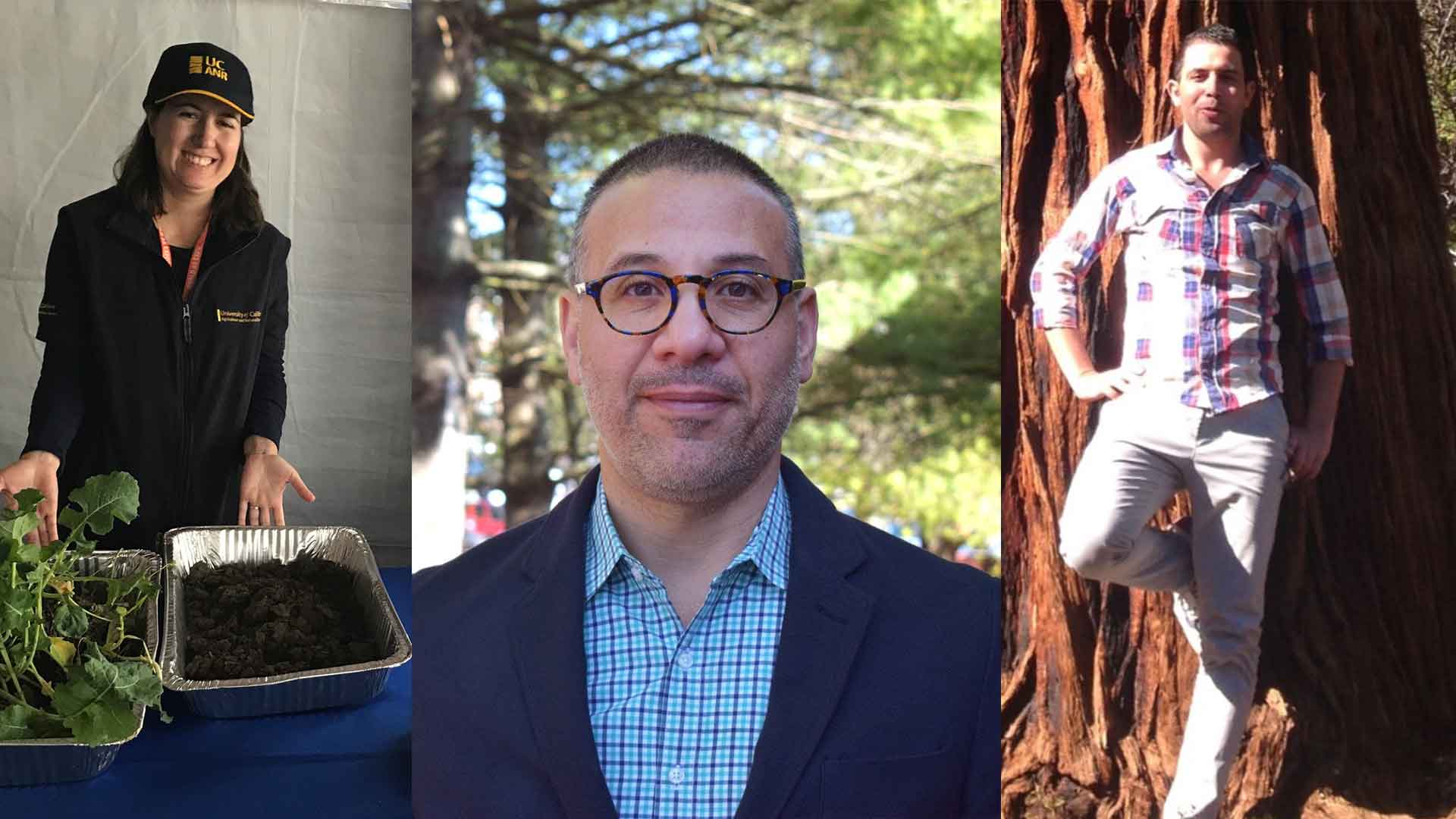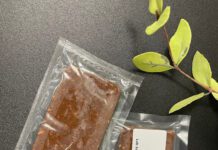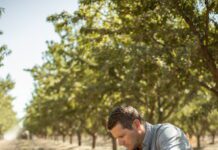Kingsburg native Joy Hollingsworth is part of the 2019 crop of new University of California Cooperative Extension (UCCE) farm advisors. Hollingsworth was appointed in April as the nutrient management and soil quality advisor in Fresno, Kings, Madera and Tulare counties.
“Right now I am focused on meeting growers and assessing their needs,” Hollingsworth said. “One area will be helping growers with new environmental regulations.”
Hollingsworth said she is also planning directions for research. Most of her work so far has been in agronomic crops, but she said with the abundance of permanent crops in her area, she would be branching out and looking at ways to address grower needs. One of the first projects to surface, she said, is biostimulant use in raisin production. Biostimulation is a process that involves the modification of the environment to stimulate existing bacteria capable of bioremediation.
Prior to her new UCCE assignment, Hollingsworth was a staff research associate at the University of California (UC) Kearney Agricultural Research and Extension Center in Parlier. She also worked as a junior specialist in the UC Davis Department of Plant Sciences where she designed and implemented agronomic field trials for canola, camelina, sugar beets and castor. Hollingsworth has a bachelor’s degree in communication and a masters degree in plant science from Fresno State.
Amer Fayed
As the new director of the Western Integrated Pest Management (IPM) Center at the UC Agriculture and Natural Resources (ANR) headquarters, Amer Fayed has some definite goals in mind.
“I want to promote adoption of integrated pest management as economically viable, sustainable and profitable for farmers,” Fayed said in a phone interview.
In an introductory blog on the Center’s web site, Fayed said he believes that while consumers want safe, high quality produce, they are unaware about agricultural practices and crop protection. There is a great opportunity for the Center to educate the public, consumers and regulators about IPM and that is can be a safe alternative to chemical pesticides, he said.
The promotion of integrated pest management will include communicating the benefits and explaining the concept of IPM and its use in agriculture in terms that everyone can understand. Fayed said he also wants to strengthen linkages between the scientific community and growers to demonstrate how IPM strategies work in agriculture. These efforts will be in the form of outreach and training workshops for growers.
Another important function of the IPM Center will be continuation of data presentation to the public. This is vital, Fayed said, because the public funds the work at the center and needs to know how the money is spent. Presenting supporting data on research projects is one of Fayed’s goals. The Center will be awarding nearly $250,000 in grants for one-year projects. Information can be found on the Center web site: westernipm.org.
Fayed joined the UC ANR as director of the Western Integrated Pest Management Center in July. He is a plant pathologist with research experience in identification, epidemiology and biological and molecular diversity of viruses. Before coming to the IPM Center, he was an associate manager at Virginia Tech and Africa program manager of the Feed the Future Innovation Lab for IPM. Fayed has a bachelor’s degree in agriculture and a masters in crop production from the American University of Beirut. He holds a doctorate degree in plant pathology, physiology and weed science from Virginia Tech.
Fayed said his plans for his first months as director will be to become acquainted with the partners and stakeholders in the Western region which includes Hawaii and Alaska. This is a huge region, he said, many commodity groups, IPM coordinators, scientists and Center co-directors. Getting to know all the people involved and determining the areas where the Center can make the most impact are big challenges.
Mohamed Nouri
New UCCE area orchard systems advisor Mohamed Nouri will be problem solving in a wide variety of fruit and nut crops.
Nouri, who joined UC ANR in July, said he is currently meeting with growers and assessing their crop production needs. He is based in San Joaquin County, a statewide leader in walnut and sweet cherry production. Other important crops in San Joaquin County and the surrounding area include almonds, apples, oil olives and grapes.
In this position, Nouri will be a regional and statewide extension leader, bringing together campus based academics, UCCE advisors and growers to work on crop production challenges.
Nouri, in a phone interview, said he would continue to focus on new and emerging diseases, and his goals as farm advisor is to develop a strong outreach and research program, and to work collaboratively to achieve positive and effective solutions that will secure a sustainable future for California agriculture and everyone who depends on it for healthy environment and healthy communities, today and especially for future generations.
Prior to joining ANR, Nouri worked for UC Davis as a graduate student and postdoctoral researcher at the Kearney Agricultural Research and Extension Center from 2015 to 2019. Working closely with UCCE specialists, UCCE farm advisors, pest control advisers and farmers, Nouri studied fungal diseases of major fruit and nut crops, including olive, pistachio, sweet cherry, citrus, almond and grape. He oversaw the plant disease diagnostic services for perennial fruit and nut crops in California and management tasks for the laboratory.
Conducting his research in California, Nouri earned a Ph.D. in plant pathology from University of Tunis El Manar, where he also earned an M.S. in microbiology and plant pathology and a B.S. in life and earth sciences. Nouri is fluent in Arabic and French.
Nouri is based in Stockton and can be reached at (209) 953-6115 and mnouri@ucanr.edu.
All photos courtesy of UC ANR.












